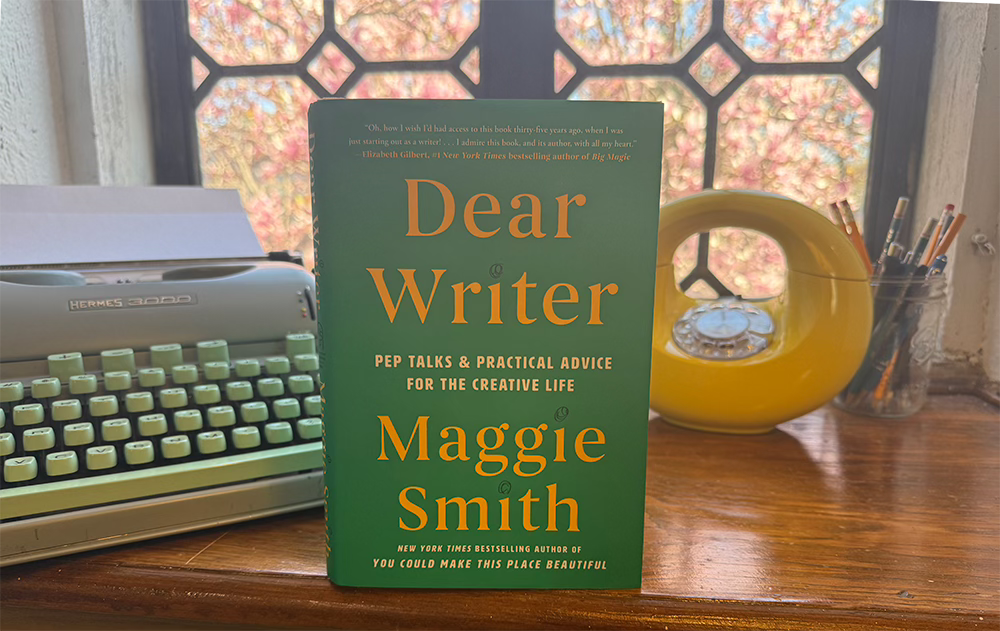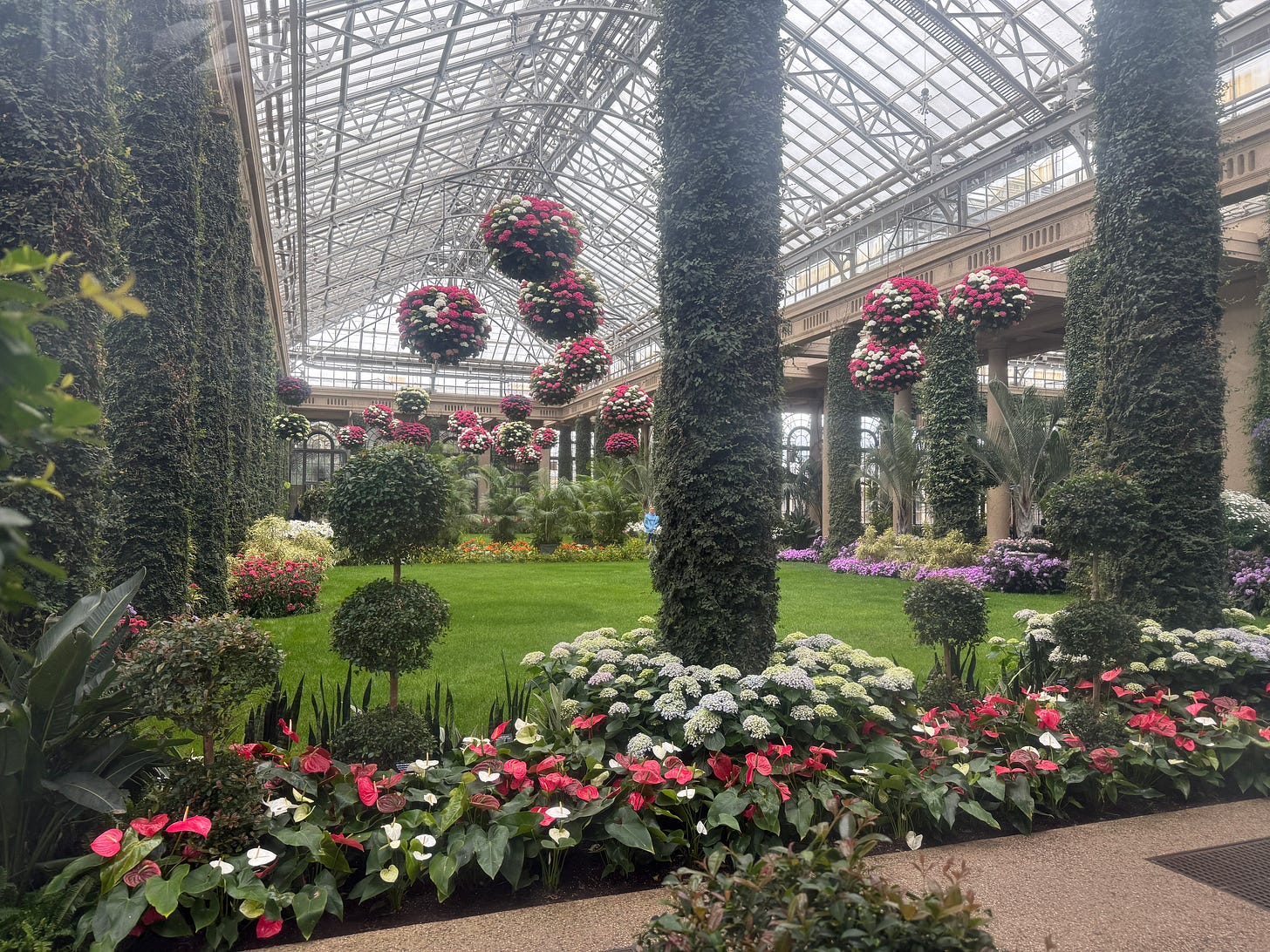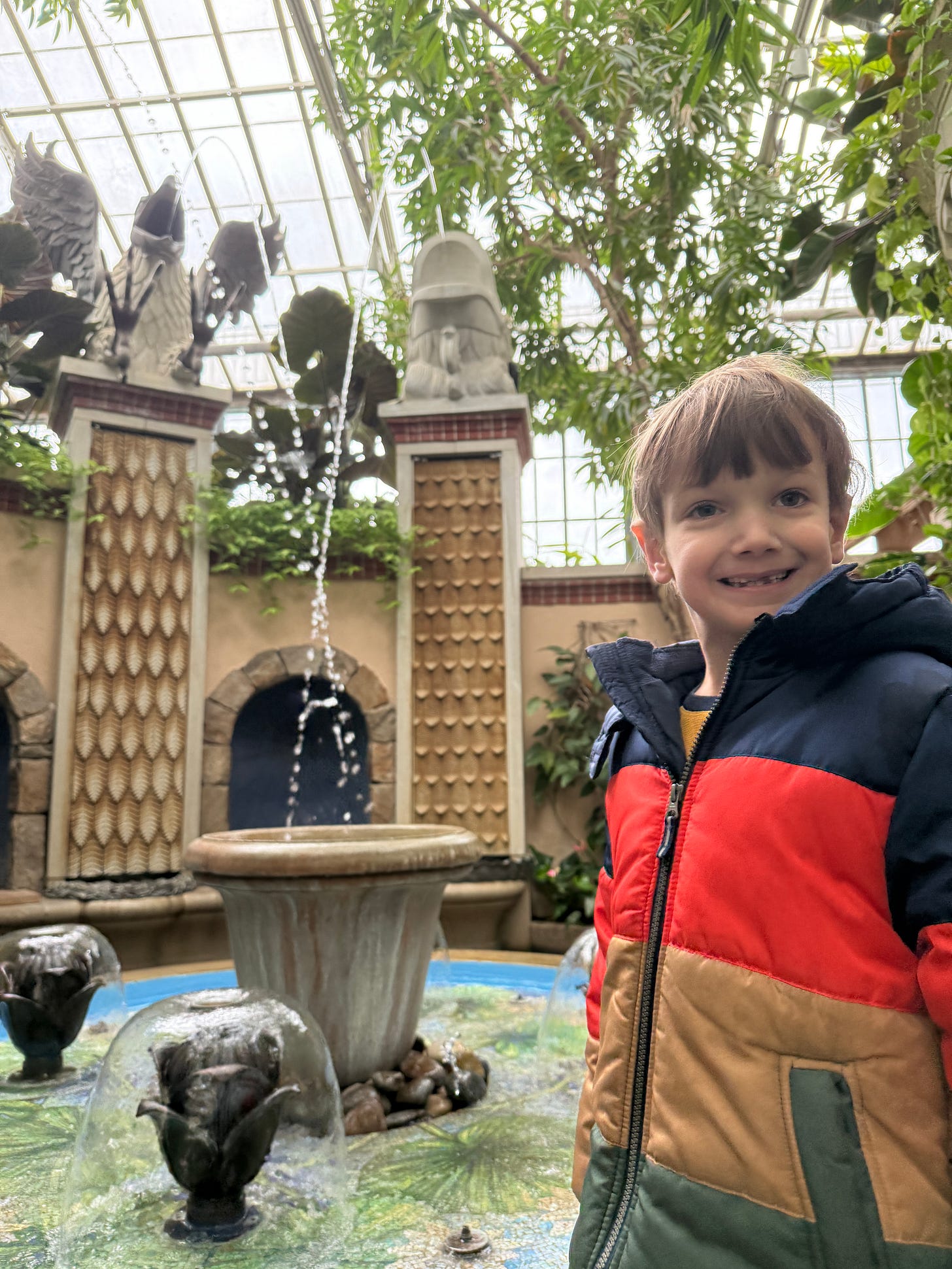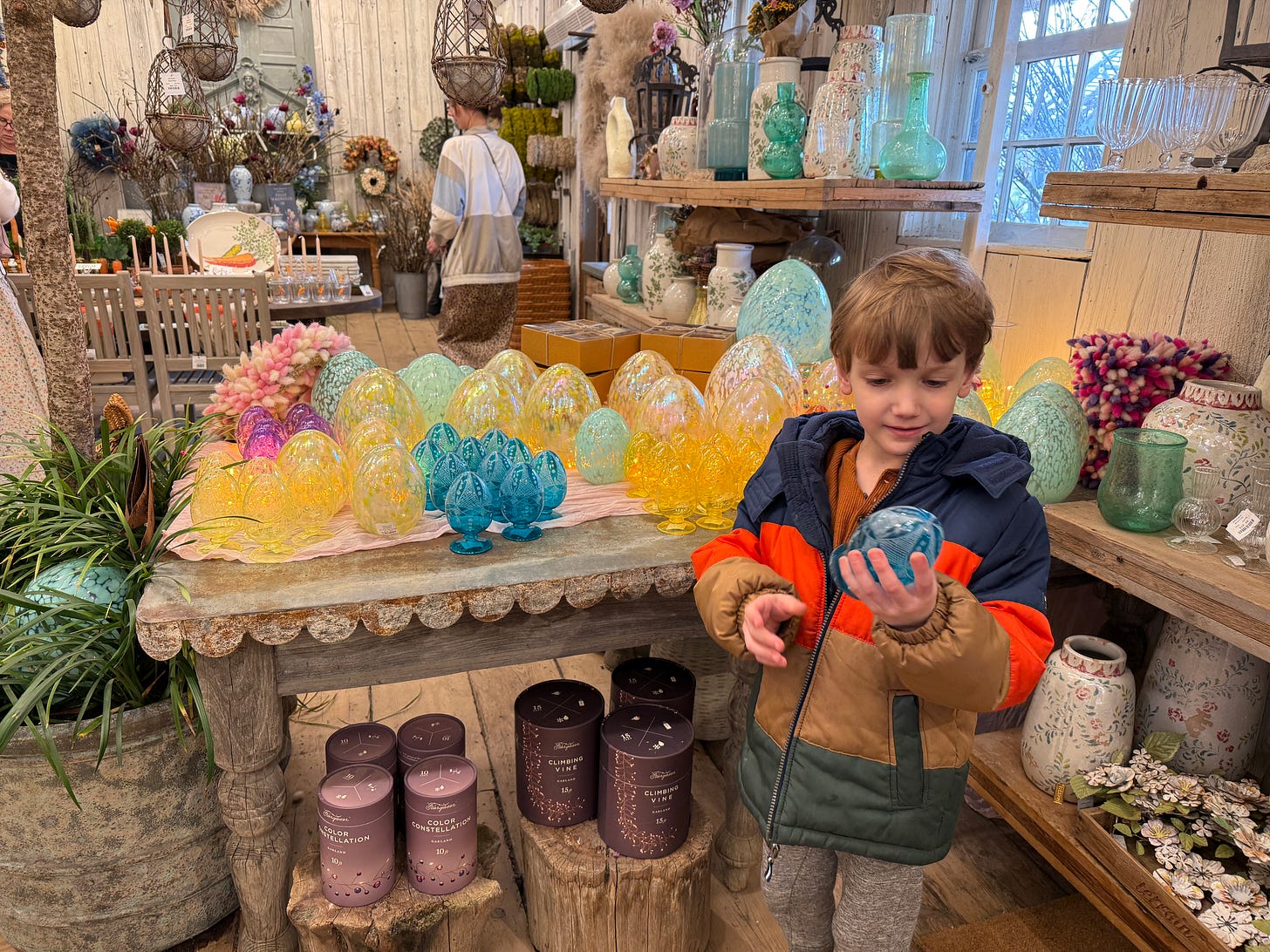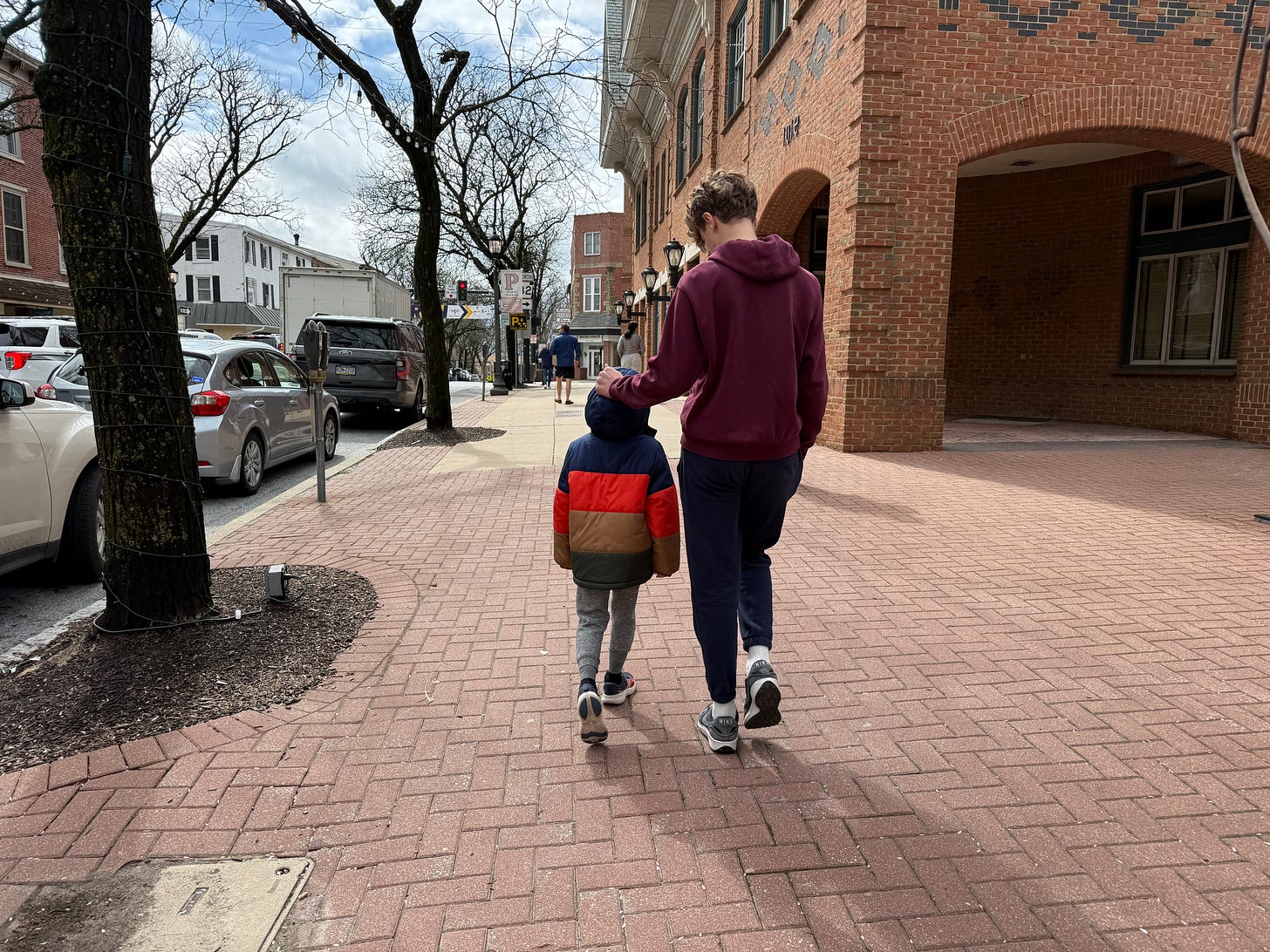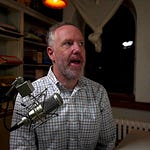I’m so excited to share with you my interview with poet
. Last week we sat down and had an amazing conversation where we discussed the creative process, the importance of sharing your work, and the complexity of one’s identity as a writer.I will share highlights below, as well as clips that resonated most with me. You can also watch our full interview above. I highly recommend her new book, Dear Writer: Pep Talks & Practical Advice for the Creative Life. Maggie also has a wonderful Substack For Dear Life with Maggie Smith.
Before we dig in, a few reminders:
My next Creative Shift Mastermind begins May 1st! This is an amazing opportunity to collaborate with me and a wonderful group of writers who have already signed up. I will mentor you through a step-by-step process to learn how to share your writing and develop an audience. Full details and registration can be found here.
On Friday April 25th, I’m teaching a workshop hosted by
at : “Your Next 100 Readers: A Step-by-Step Guide to Finding and Engaging Your Ideal Audience.” Full details and registration can be found here.
Okay, let’s dig in to highlights from my conversation with Maggie Smith…
Swerve Outside Your Creative Lane
So often I speak with writers and artists, and they worry about which project to focus on first, and if all their projects feel connected to each other. Maggie’s advice here is so freeing:
“It is scary because I. I don't really know where I'm going with a thing, but it's scary in the best way and the things that I'm saying yes to now or pursuing now that I'm most excited about are things I've never done before.”
“Writing is writing. If you can make a beautiful sentence, that is a portable skill that you can pack up in the bag of your portable skills and carry to any other genre.”
“I don't believe that that people need to stay in their lane. I actually think people should boldly swerve out of their creative lanes as much as humanly possible, because honestly, swerving from poetry into nonfiction woke up my poetry in different ways. Swerving from nonfiction into fiction has woken up my poetry and my nonfiction, and I feel like swerving into drama is going to wake up all of these other things. It actually feels like it all feeds each other to me.”
You Don’t Need to Have All the Answers
If you feel nervous about what you are doing and how people view your identity as a writer or creator, that is not only normal, but a good thing! So often I speak with someone who hopes they achieve a level of success where everything is easy. Where creative work just comes to them, and where the path is obvious. What Maggie shares here is a compelling advocacy for another way of looking at this:
“I'm 48 and I don't know what I'm doing and I love it. I don't want to live sitting down. I like how trying new things, whether it's like within a genre that I'm working in, or taking on a completely different project, or even just like forcing myself to do more public speaking, which is not my natural mode — all of these things, it just feels like someone's kind of like taking you by the shoulders and gently shaking you awake a little. And that is good for us. I mean, I think as, as creative people, but also just as people.”
Why Writers Must Write
The way she described her need to write her memoir really resonated with me, I’ve been thinking about this every day since we spoke. The context is her describing why she felt compelled to write her 2023 memoir, You Could Make This Place Beautiful.
“Oh, I was terrified writing that book. That book scared me to death, which is why I wrote it. That book was like an armoire in front of a doorway and I could not leave the room I was in until I wrote the book. Like it was, it was like a piece of furniture was keeping me in this weird head space because I was ruminating so much over the experiences I write about in that book. The only way to get to write other books was to clear that one out of the way.”
“So my memoir was the book I had to write so I could stop thinking about that. Put a form to it, put a shape to it, get it out of here, my head, and onto there, the page and, and then, leave it behind. There's a version of me who lives in that book who doesn't really exist anymore. That woman who wrote that book is not me. She's me several years ago and she still lives in the book. I had to leave her behind there. Thank her for her service.”
Say Yes to As Much As Possible
Maggie and I talked a lot about the value of sharing your work. As she brings her book Dear Writer to the world, I have seen her go from event to event, podcast to podcast, meeting with new people and sharing her wisdom. I so appreciate how she framed the value of sharing:
“ We all still have to work for it. There's so much out there. It never ceases to amaze me, writers all the time are like, “I'm sorry, I'm talking too much about my book. I've got a book coming out. I'm so sorry I'm talking about my book.” I refuse to apologize about that because I know that as much as you talk about your book, because of various algorithms, there will always be someone who lives in your town who had no idea that you have a book out, even though you feel like you're shouting it at the world constantly.”
“People aren't thinking about you as much as you think they are, which is a blessing and people aren't seeing as much as you are putting out. So, I always say, talk louder, and stop apologizing.”
“We're only really reaching a tiny percentage of the people that we could reach and it's always really exciting when something catches and we get to more people. But, it's hard and you never know what that thing is going to be. You never know the poem that could go viral, or the book that could hit the be the bestseller list, or the city where you meet somebody who ends up becoming an important connection or friend in your life. So I try to say yes to as much as possible.”
Creative Work Happens Amidst the Rest of Our Busy Lives
As we were talking about her writing process, I asked if she was in her home office. Her response was surprising and incredible:
“I don't know that I've ever started anything in this office. I'll be really honest. It's where my computer lives, it's where my record player is, it's where my books are, it's where I record podcasts. It's not at all, where I come to sit and write. I usually am just out doing something when an idea happens to me. I'm washing dishes and an idea happens to me. I'm folding laundry, I'm walking my dog, I'm having a conversation, I'm watching a movie. The world is my office. I don't know why we can't think of it that way.”
On Devoting Herself to Craft
I asked her about her journey to now, what she hoped to be doing when she was younger. Again, her answer is so honest about the journey many people go through in forging their identities as a writer, and balancing that with the need to earn a living.
“I never thought I would do this for a living. I guess I'll say that it never occurred to me that one could do this for a living. I basically went to graduate school without knowing how I would pay my bills. After graduate school, I just went to get an MFA because I knew it would buy me three years of being immersed in poetry. I was on fellowship, so I was like, well, I don't have to get a job for three years. All I have to do is think about poems, write poems, teach poems, and learn about poems. And for three years that's what I got to do.”
“When I left grad school, I taught for a year at a college and I hardly wrote because I was lesson planning and commenting on student work and co-directing the reading series and doing all the things that college professors do. I realized I don't think I want to do that as a job. Because the most important thing to me is writing poems, and I don't want spend the time that I could be writing poems, commenting extensively on other people's poems.”
“I love teaching, but I didn't want do it full time. I needed my nights back to write. I needed a job where I could leave it behind, so I just ended up going into publishing where I could sit in a cubicle and work eight to four, and then I could write at night. And I did that for many years before I finally got to a place with my own writing.”
“It really wasn't until I started publishing prose that I could afford to not do that anymore and not have a day job. But I had no sort of romantic idea of what being a poet would be because I never thought I would be a poet. I just thought I would stay a poet. I thought when I was writing poems at 16 that I would be writing poems when I was 76.”
On Prioritizing Writing When Life is Busy
With every writer I work with, their life is busy in a complex and unique way. I love the way Maggie talked about her own life, and how she ensures that writing doesn’t fall off the to-do list:
“It's hard to be doing all of the stuff at the same time, right? It's hard to have a day job and have time to write. It's hard to teach and have students and have time to write. Yet, I'm never crankier than when I'm not doing it. It's like I just feel clogged in this weird way. I just have all of this stuff that I need to be keeping, sort of coursing through me.”
“If it's not, I'm not actually that much fun to be around and I'm not that good at the other jobs that I have in my life. So being able to keep that channel open, even if it's not for the same amount of time every day or the same number of words every day, just keeping that channel open, I feel like it's the best thing I can do for myself, but it's also the best thing I can do for the people around me.”
“Like life has been crazy. One season of soccer for my son has ended the other season picked up. There's overlap. I'm driving to multiple practices and games every week. I'm a single parent. My daughter just got a job.”
“We're trying to get all this stuff done. Like it's spring, I'm traveling. I'm trying to see friends. Every day I am like, okay, the to-do list is carrying over five items from yesterday's to-do list. So I clearly need to prioritize and what's it gonna be, and I don't want the answer to be my creative work. I don't want that to be the thing that falls off the bottom of the list or constantly gets carried over and deferred, and deferred and deferred to the next day. I'd much rather it be laundry or dusting.”
I encourage you to watch or listen to the 56-minute long full interview via the video at the top of this page. And of course, check out Maggie’s new book Dear Writer:Pep Talks & Practical Advice for the Creative Life.
For my paid subscribers this week, I shared a video case study of how to engage readers online. See a preview here.
Reminder: if you want to explore working with me, there are two ways I collaborate with writers and creators:
My Creative Shift Mastermind, which begins May 1st
As always, thank you for being here with me.
-Dan
Kids of the Week: We took a trip to eastern Pennsylvania to explore Longwood Gardens and the Brandywine Museum:
The 8-year old had to touch ALL of the delicate glass:
Enjoying a mushroom-shaped dessert:
Brothers:


